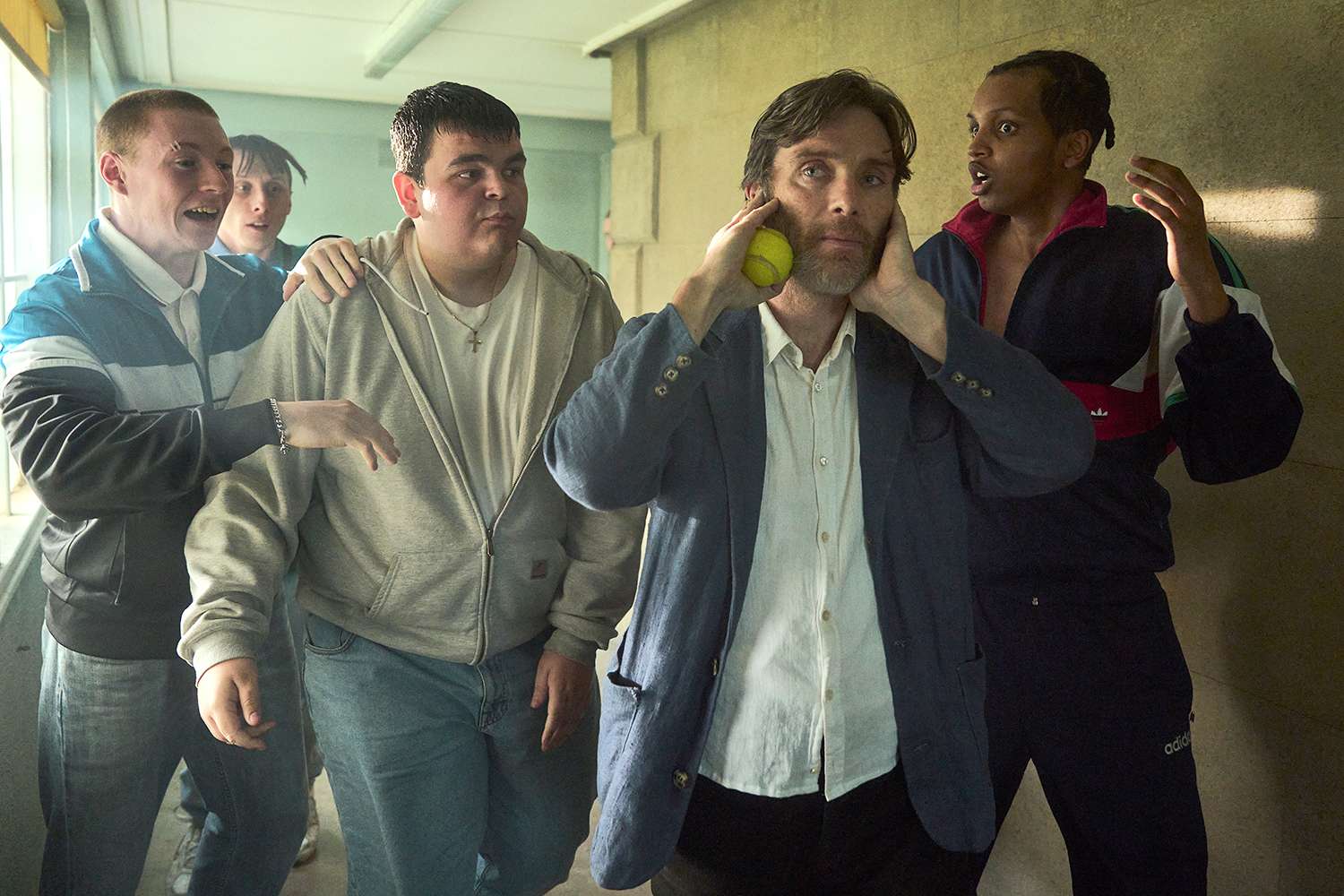How Increased Light Brightness Affects Vision

Welcome to your ultimate source for breaking news, trending updates, and in-depth stories from around the world. Whether it's politics, technology, entertainment, sports, or lifestyle, we bring you real-time updates that keep you informed and ahead of the curve.
Our team works tirelessly to ensure you never miss a moment. From the latest developments in global events to the most talked-about topics on social media, our news platform is designed to deliver accurate and timely information, all in one place.
Stay in the know and join thousands of readers who trust us for reliable, up-to-date content. Explore our expertly curated articles and dive deeper into the stories that matter to you. Visit Best Website now and be part of the conversation. Don't miss out on the headlines that shape our world!
Table of Contents
How Increased Light Brightness Affects Vision: From Glare to Long-Term Damage
We all appreciate a brightly lit room – it feels cheerful and helps us see better, right? But the relationship between light brightness and vision is far more complex than that. While adequate lighting is crucial for clear vision, excessive brightness can actually harm our eyes and impact our overall visual health. This article explores the effects of increased light brightness on vision, examining both the immediate and long-term consequences.
The Immediate Effects: Glare and Discomfort
The most immediate effect of increased light brightness is glare. This is the overwhelming sensation of brightness that makes it difficult to see clearly. Glare can be caused by various sources, including:
- Direct sunlight: Looking directly at the sun, even for a short time, can cause temporary blindness and damage to the retina. Always wear appropriate sunglasses with UV protection.
- Bright artificial lights: Fluorescent lights, halogen lamps, and even some LED screens can produce excessive glare, especially in reflective environments.
- Reflective surfaces: Snow, water, and even polished floors can reflect bright light, contributing to glare.
Beyond glare, excessive brightness can lead to:
- Eye strain: Your eyes work harder to adjust to intense light, leading to fatigue, headaches, and blurry vision.
- Discomfort: A burning or stinging sensation in the eyes is a common response to overly bright environments.
- Reduced visual acuity: Your ability to see fine details might temporarily decrease due to the strain on your eyes.
Long-Term Effects: Potential for Eye Damage
While the immediate effects of bright light are usually temporary, prolonged exposure to high levels of brightness can have more serious consequences:
- Photokeratitis: This is a painful inflammation of the cornea, often caused by exposure to UV radiation from the sun or welding arcs. Symptoms include redness, pain, and blurry vision. .
- Macular degeneration: While not directly caused by bright light, studies suggest that prolonged exposure to high levels of light, especially blue light emitted from digital screens, may increase the risk of age-related macular degeneration (AMD), a leading cause of vision loss in older adults.
- Cataracts: Some research indicates a correlation between long-term exposure to bright light and an increased risk of cataracts, a clouding of the eye's lens.
Protecting Your Vision from Excessive Brightness
Fortunately, there are steps you can take to protect your vision from the harmful effects of increased light brightness:
- Wear sunglasses: Choose sunglasses that offer 100% UV protection.
- Use anti-glare filters: Consider using anti-glare screens for your computer or phone.
- Adjust lighting: Dim the lights when possible and avoid harsh overhead lighting.
- Take breaks: When working on a computer or other digital devices, take regular breaks to rest your eyes.
- Follow the 20-20-20 rule: Every 20 minutes, look at something 20 feet away for 20 seconds.
- Consult an eye doctor: Regular eye exams are crucial for detecting and addressing any vision problems early.
Conclusion:
While we need adequate lighting to see clearly, excessive light brightness can significantly impact our vision, from causing immediate discomfort to increasing the risk of long-term eye damage. By understanding the effects of increased light brightness and taking appropriate precautions, we can protect our vision and maintain eye health for years to come. Remember, prioritizing eye health is an investment in your overall well-being. Schedule an eye exam today to ensure your vision is in optimal condition.

Thank you for visiting our website, your trusted source for the latest updates and in-depth coverage on How Increased Light Brightness Affects Vision. We're committed to keeping you informed with timely and accurate information to meet your curiosity and needs.
If you have any questions, suggestions, or feedback, we'd love to hear from you. Your insights are valuable to us and help us improve to serve you better. Feel free to reach out through our contact page.
Don't forget to bookmark our website and check back regularly for the latest headlines and trending topics. See you next time, and thank you for being part of our growing community!
Featured Posts
-
 Cities On Alert Democrats Confront Trumps Broadened Political Assault
Aug 14, 2025
Cities On Alert Democrats Confront Trumps Broadened Political Assault
Aug 14, 2025 -
 Peacemakers Dcu Story The Untold Story Of A Cut Justice League Appearance
Aug 14, 2025
Peacemakers Dcu Story The Untold Story Of A Cut Justice League Appearance
Aug 14, 2025 -
 Steve Trailer A Glimpse Into Cillian Murphys New Netflix Reform School Drama
Aug 14, 2025
Steve Trailer A Glimpse Into Cillian Murphys New Netflix Reform School Drama
Aug 14, 2025 -
 Its Cow Or Never A Deep Dive Into Peacemakers Season 1 Finale
Aug 14, 2025
Its Cow Or Never A Deep Dive Into Peacemakers Season 1 Finale
Aug 14, 2025 -
 Parker Waichman Llp 5 Million Nursing Home Negligence Verdict In New York
Aug 14, 2025
Parker Waichman Llp 5 Million Nursing Home Negligence Verdict In New York
Aug 14, 2025
Latest Posts
-
 Adhd Medications Potential Benefits Beyond Focus New Study Shows
Aug 14, 2025
Adhd Medications Potential Benefits Beyond Focus New Study Shows
Aug 14, 2025 -
 Ices Hiring Woes Obstacles To Reaching 10 000 New Agents
Aug 14, 2025
Ices Hiring Woes Obstacles To Reaching 10 000 New Agents
Aug 14, 2025 -
 Spirit Airlines Stock In Freefall Company Issues Bleak Outlook Raising Bankruptcy Concerns
Aug 14, 2025
Spirit Airlines Stock In Freefall Company Issues Bleak Outlook Raising Bankruptcy Concerns
Aug 14, 2025 -
 Gripping Trailer Cillian Murphy Returns In Netflixs Steve
Aug 14, 2025
Gripping Trailer Cillian Murphy Returns In Netflixs Steve
Aug 14, 2025 -
 Cd Projekt Red Delays Cyberpunk 2077s Update 2 3 What We Know
Aug 14, 2025
Cd Projekt Red Delays Cyberpunk 2077s Update 2 3 What We Know
Aug 14, 2025
